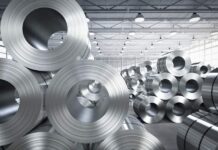The automotive air filter is vital for all cars and vehicles, as it can extract germs, viruses, gases, particles, and fuel exhausts from the inside air. Doing so not only filters the vehicle’s cabin but also allows clean air inside, relieving the occupants and passengers.
When moving in a vehicle, you should breathe clean and bacteria-free air. Since your car or vehicle journey can take hours, you are not safe from viruses and germs unless the cabin air is purified regularly.
If you don’t use this filter in your vehicle, you may suffer from eye irritation, skin problems, breathing troubles (at times), headaches, and fatigue after returning home.
Grand View Research says the cabin air filter market is poised for massive global growth. The report states:
The global automotive air filters market size was estimated to be around USD 4.50 billion in 2022 and is expected to register a compound annual growth rate (CAGR) of 5.5% from 2023 to 2030.
Increasing demand for high energy conservation and lower emissions will drive the demand for cabin air filters worldwide. Additionally, favorable regulatory norms and water and air filtration guidelines contribute to market development.
Why Do You Need a Cabin Air Filter?
The necessity of having a cabin air filter can be gauged from the fact that you face health risks during automotive drives due to cabin heat, dust particles, various pollutants, including pollen, and toxic gasses.
Essentially a pleated-paper filter, the cabin air filter is fitted at the outside air intake or behind the glove box to clean the air as it enters the cabin. This serves as a purpose-built Heating, Ventilation, and Air Conditioning (HVAC) system for the car or any other automotive vehicle.
Due to growing air pollution and global warming, your health may suffer from toxic pollutants while driving your car, van, or any other vehicle. This necessitates that your vehicle is fitted with modern and scientifically high-end cabin air filters.
In Australia, you can find modern air filters for your vehicle’s cabin, such as paper, gauze, foam, and other high-end options. These cabin air filters ensure the passage of fresh air, the exhaust of toxic air, and the flow of pure oxygen.
Cabin filters with the latest technology can filter dust particles of sizes ranging from 1-3 microns with a filtration rate of 95% to 99% and 100% filtration of microns size 3.
In other words, they provide almost complete health safety within the car or vehicle cabin. Let’s look at the need for cabin air filters these days.
Why Is Demand for Cabin Air Filters Rising?
The overall market demand for automotive air filters is driven by several factors, primarily the rapid deterioration of global weather conditions.
The main points contributing to the growing demand for cabin air filters are as follows:
- Increasing levels of carbon emissions
- Higher levels of air pollution
- Rising air quality concerns among vehicle users
- Toxic exhaust gases that pose dangers to human health
- Other contaminations
- Need for fresh cabin air
- General awareness about health among vehicle users
Due to these health risks, cabin air filters are now widely used in all cars, vans, light commercial vehicles, passenger buses, and heavy commercial vehicles across the globe. Therefore, cabin filters are necessary for cars and automotive vehicles in Australia and other parts of the world.
In Conclusion
Cabin air filters have been used since 1940 when they were first introduced to cleanse cabin air. Nowadays, all vehicles are fitted with this automatic ventilation system. The latest and technologically improved filters for cars and vehicles can filter the air before it enters the engine’s combustion chamber.
An air filter is considered one of the most important components of any vehicle’s heating and cooling system. By filtering the cabin’s dirty air, it allows passengers inside to breathe fresh and germ-free air. If you haven’t installed an air filter yet in your vehicle, do it now without further delay.
Read Also: DIY AC Maintenance Guide: How to Keep Your AC Unit Running Smoothly



































































